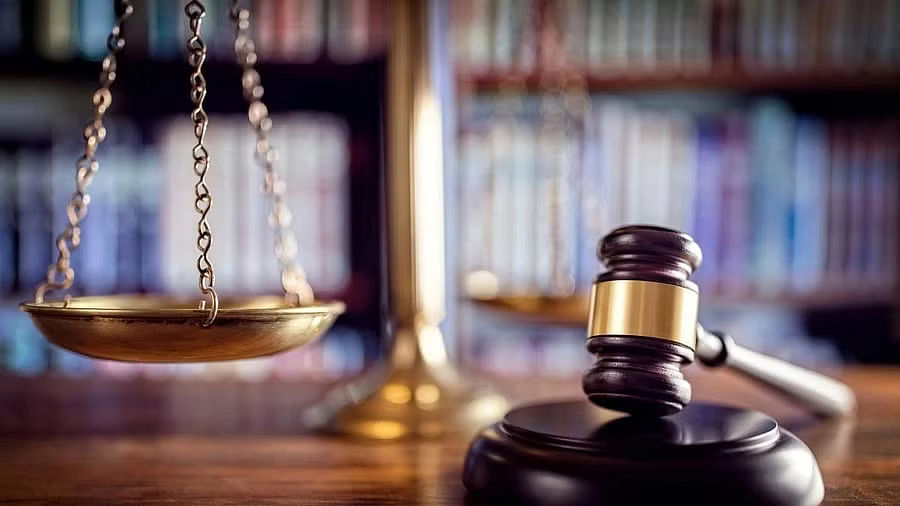
Image showing a gavel (for representation).
Credit: iStock Photo
Legislative reforms are essential for the smooth functioning of a democratic country like India, which has a large administrative mechanism and an independent judiciary rooted in the Rule of Law.
In 2024 alone, about 24 bills have been introduced in either the Lok Sabha or the Rajya Sabha. While some are routine but essential, such as the Finance Bill, others propose significant amendments to existing laws or the introduction of new legislation. These reforms often aim to implement changes directed by the Supreme Court of India or high courts or to modernise outdated laws.
Key legislative reforms in 2024 are as follows:
The three new criminal laws introduced and passed by both Houses of Parliament in 2023 came into effect on July 1, 2024, as per the notification of the Ministry of Home Affairs. These three new laws will overhaul the criminal justice system: the Bharatiya Nyaya Sanhita (BNS) in place of the Indian Penal Code, 1860; the Bharatiya Nagrik Suraksha Sanhita replacing the Code of Criminal Procedure, 1898; and the Bharatiya Sakshya Adhiniyam replacing the Indian Evidence Act, 1872, respectively. They received President Droupadi Murmu’s assent on December 25, 2023.
The controversial Section 106(2) of BNS, which is related to punishment of “0-10 years” in “hit and run” cases, has been put on hold. Transporters and drivers across the country rose up against this provision after notification by the President. The Government of India, along with many public sector institutions, has initiated training and awareness programmes for stakeholders like police officials and the judiciary.
Two bills were introduced in the Lok Sabha with an aim to streamline the Waqf Board’s work and ensure the efficient management of Waqf properties. These are the Waqf (Amendment) Bill, 2024, and the Mussalman Wakf (Repeal) Bill, 2024. The Waqf (Amendment) Bill, 2024, aims to amend the Waqf Act, 1995, and to redress the issues and challenges in regulating and managing Waqf properties. The Amendment Bill aims to improve the efficiency of waqf properties by overcoming the shortcomings of the previous Act by introducing changes such as renaming the Act, updating the definitions of waqf, improving the registration process, and increasing the role of technology in managing waqf records.
The Mussalman Wakf Act, 1923, a colonial-era legislation, is archaic and inadequate for managing waqf properties in modern India. The key objective of the Mussalman Wakf (Repeal) Bill, 2024, is to repeal the Mussalman Wakf Act, 1923, and to ensure uniformity, transparency, and accountability in the administration and management of waqf properties.
The Waqf (Amendment) Bill, 2024 has been referred to the Joint Committee of Parliament after criticism by opposition benches in the Lok Sabha.
Another significant reform is the Bhartiya Vayuyan Vidheyak 2024, which will replace the existing Aircraft Act 1934, providing provisions for ease of doing business in the civil aviation sector.
With the aim of making India a global hub in arbitration for resolution of global economic and commercial disputes, the GoI has proposed a new round of changes to the Indian Arbitration and Conciliation Act 1996. The proposed changes align with the previous amendments introduced in 2015, 2019, and 2021. The draft Arbitration and Conciliation (Amendment) Bill, 2024 seeks to promote institutional arbitration, further reduce court intervention, and facilitate the timely conclusion of arbitration proceedings in India. This draft bill comes in the aftermath of recommendations by an expert committee led by T K Viswanathan (former secretary, Ministry of Law and Justice, Government of India) in February 2024. A public consultation on the 2024 draft bill is underway.
The Jammu and Kashmir Local Bodies Laws (Amendment) Bill, 2024, was introduced in Lok Sabha on February 5, 2024, to amend three laws applicable in the erstwhile state of Jammu and Kashmir: the J&K Panchayati Raj Act, 1989, the J&K Municipal Act, 2000, and the J&K Municipal Corporation Act, 2000. The bill extends reservations for Other Backward Classes (OBCs) in local bodies; amends provisions related to the State Election Commissioner, including the mandate, terms of service, and removal; and allows the State Election Commission to provide additional grounds for the removal of a person from the electoral roll.
On August 9, two important bills were introduced to facilitate global trade and commerce. They are the Carriage of Goods by Sea Bill, 2024, and the Bills of Lading Bill, 2024.
The Bills of Lading Bill, 2024, seeks to replace the Indian Bills of Lading Act, 1856 and simplify the transfer of rights and liabilities associated with a bill of lading.
The Carriage of Goods by Sea Bill, 2024, seeks to replace the Indian Carriage of Goods by Sea Act, 1925. The Act establishes the responsibilities, liabilities, rights, and immunities in case of goods carried from a port in India to another port in India or any other port in the world. The Act is in conformance with the International Convention for the Unification of Certain Rules of Law relating to Bills of Lading of August 1924 (Hague Rules) and subsequent amendments to it.
The Law and Justice Ministry set up the Law Commission from September 1, 2024, to August 31, 2027. It has a definite term of reference to carry out research in the field of law and makes recommendations to the government. The present terms of reference include reviewing the system of judicial administration to make it more responsive to the demands of the time.
(The writer is the principal, IFIM Law School, Bengaluru)